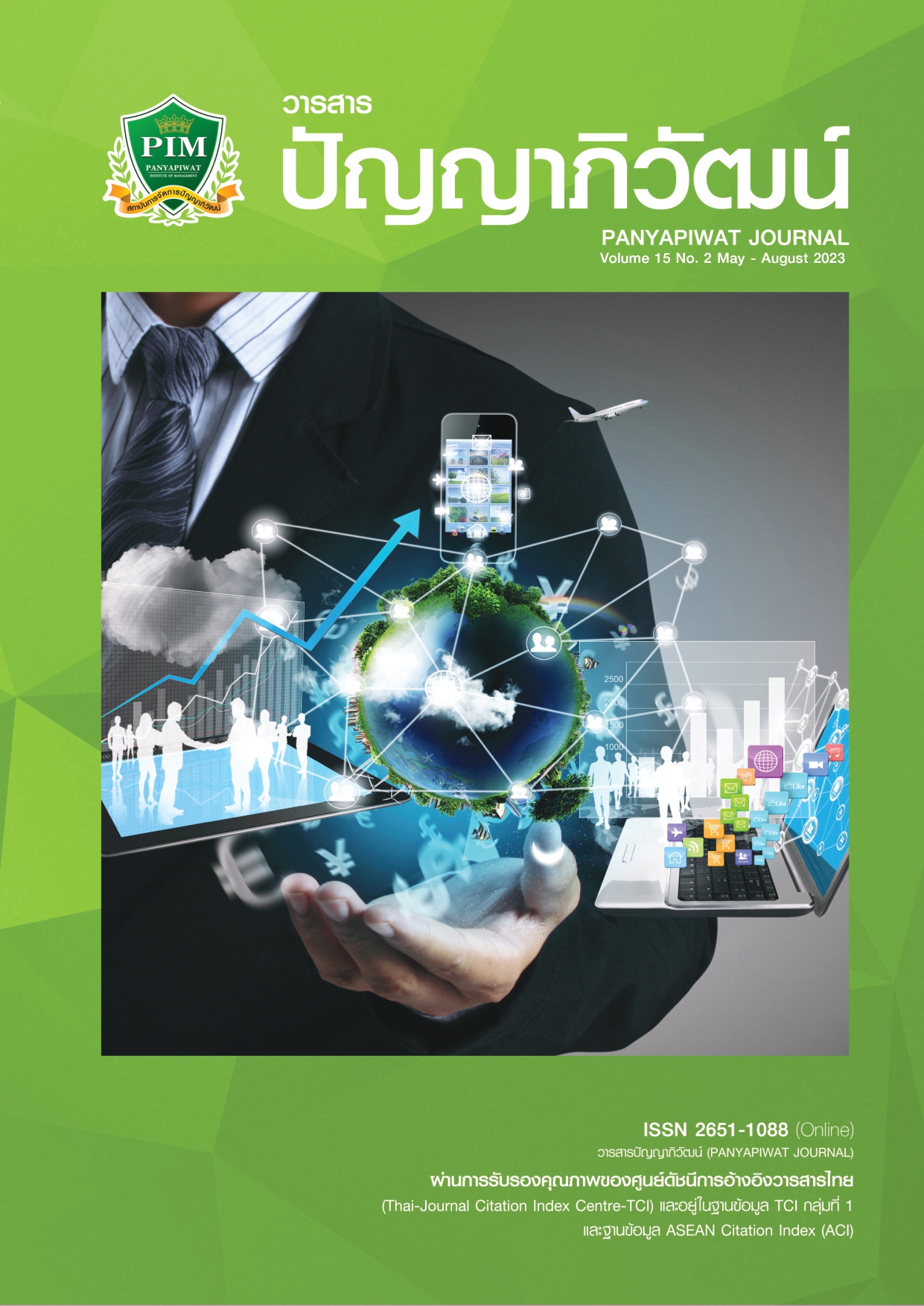สภาพการจ้างงานในปัจจุบันและทักษะการทำงานที่จำเป็นสำหรับผู้ที่มีความบกพร่องทางสติปัญญาตามความต้องการของหน่วยจ้างงาน
Main Article Content
บทคัดย่อ
ผลการวิจัยพบว่า ลักษณะการจ้างงานผู้ที่มีความบกพร่องทางสติปัญญามี 3 ลักษณะ คือ การจ้างงานด้วยมาตรา 33 มาตรา 35(3) และมาตรา 35(7) ภาพรวมการจ้างงานพบว่า กฎหมายเอื้อประโยชน์ให้คนพิการลักษณะงานมีความสอดคล้องกับศักยภาพ ความสำเร็จในการจ้างงานเกิดจากทักษะ ความสามารถ ความชอบ แรงจูงใจ และความร่วมมือจากทุกภาคส่วน ทักษะที่มีความจำเป็นมากที่สุดในการทำงานคือ ทักษะในชีวิตประจำวันรองลงมาคือ ทักษะสังคม ทักษะอาชีพ และทักษะพื้นฐานหรือทักษะวิชาการ ตามลำดับ ทักษะย่อยที่มีความจำเป็น ได้แก่ การดูแลตนเอง การควบคุมตนเอง การรับข้อมูลและทำตามคำสั่ง และการสื่อสาร ทักษะที่สำคัญอาจฝึกได้ยาก ได้แก่ ทักษะคอมพิวเตอร์ ทักษะการเรียนรู้อย่างต่อเนื่อง ทักษะการเดินทาง ทักษะการเงิน และทักษะตัดสินใจ
Article Details

อนุญาตภายใต้เงื่อนไข Creative Commons Attribution-NonCommercial-NoDerivatives 4.0 International License.
“ข้าพเจ้าและผู้เขียนร่วม (ถ้ามี) ขอรับรองว่า บทความที่เสนอมานี้ยังไม่เคยได้รับการตีพิมพ์และไม่ได้อยู่ระหว่างกระบวนการพิจารณาลงตีพิมพ์ในวารสารหรือแหล่งเผยแพร่อื่นใด ข้าพเจ้าและผู้เขียนร่วมยอมรับหลักเกณฑ์การพิจารณาต้นฉบับ ทั้งยินยอมให้กองบรรณาธิการมีสิทธิ์พิจารณาและตรวจแก้ต้นฉบับได้ตามที่เห็นสมควร พร้อมนี้ขอมอบลิขสิทธิ์บทความที่ได้รับการตีพิมพ์ให้แก่สถาบันการจัดการปัญญาภิวัฒน์หากมีการฟ้องร้องเรื่องการละเมิดลิขสิทธิ์เกี่ยวกับภาพ กราฟ ข้อความส่วนใดส่วนหนึ่งและ/หรือข้อคิดเห็นที่ปรากฏในบทความข้าพเจ้าและผู้เขียนร่วมยินยอมรับผิดชอบแต่เพียงฝ่ายเดียว”
เอกสารอ้างอิง
Bangkokbiznews. (2021, December 21). The Bangkok Metropolitan administration employs 569 persons with disabilities, with 6 employees assigned to each district. Bangkokbiznews. https://www.bangkokbiznews.com/news/978523 [in Thai]
Callus, A. M., Bonello, I., Mifsud, C., & Fenech, R. (2019). Overprotection in the lives of people with intellectual disability in Malta: Knowing what is control and what is enabling support. Disability & Society, 34(3), 345-367.
Cavanagh, J., Meacham, N., Cabrera, P. P., & Bartram, T. (2019). Vocational learning for workers with intellectual disability: Interventions at two case study sites. Journal of Vocational Education & Training, 71(3), 350-367.
Chapirom, S. (2022). Occupational and employment welfare for people with disabilities: Driven by civil society. Journal of Social Synergy, 13(2), 59-71.
Department of Employment. (2019). Service manual for using section 33 and section 35 of persons with disabilities empowerment act, B.E. 2550 (2007). Employment Service System Development Division. [in Thai]
Jomklang, W., Sriwanyong, S., & Mitranun, C. (2020). The development of model for preparing pre-vocattion skills for autism transition from school to work. Journal of Social Science and Buddhistic Anthropology, 5(12), 166-182. [in Thai]
Kang, Y. S., & Chang, Y. J. (2020). Using an augmented reality game to teach three junior high school students with intellectual disabilities to improve ATM use. Journal of Applied Research in Intellectual Disabilities, 33(3), 409-419.
Khayatzadeh-Mahani, A., Wittevrongel, K., Nicholas, D. B., & Zwicker, J. D. (2020). Prioritizing barriers and solutions to improve employment for persons with developmental disabilities. Disability and Rehabilitation, 42(19), 2696-2706.
Levinson, E. M., & Palmer, E. J. (2005). Preparing students with disabilities for school-to-work transition and postschool life. Principal Leadership, 5(8), 11-15.
Lindsay, S. (2011). Discrimination and other barriers to employment for teens and young adults with disabilities. Disability and Rehabilitation, 33(15-16), 1340-1350.
Loyd, R. J., & Brolin, D. E. (1997). Life centered career education: Modified curriculum for individuals with moderate disabilities. Council for Exceptional Children.
Murphy, G. H., & Clare, I. C. (2021). Financial decision making and people with intellectual disabilities. In I. Khemka, & L. Hickson (Eds.), Decision making by individuals with intellectual and developmental disabilities (pp. 405-421). Springer.
Noimala, W. (2021). The essential work skills of the 21st century. Ratanabuth Journal, 3(1), 45-57. [in Thai]
Pattaranawig, P. (2022). A study of employment outcomes of the social innovation foundation: According to the standard of the development of the quality of life of people with disabilities. Nakhon Lampang Buddhist Colleges Journal, 11(2), 105-124. [in Thai]
Phutrakhul, P. (2018). The quality of life of the people with impairment arising from community employment and career promotion. Humanities and Social Sciences, 35(3), 198-215. [in Thai]
Punyaratabandhu, P., Kuayngen, B., Ardlasut, P., Thalang, W. N., & Piyasiripon, N. (2016). The study capacity building and empowering of the disabled through continuing education. The Golden Teak : Humanity and Social Science Journal (GTHJ.), 22(2), 51-63. [in Thai]
Rizqianti, N. A., Ediyanto, E., & Efendi, M. (2021). Completeness of shopping skills media features for students with mental retardation at special junior high school: A literature. Journal of Disruptive Learning Innovation (JODLI), 3(1), 8-13.
Royal Thai Government. (2020, August 5). The Labor Minister has given the order to invade the establishment: Preparing for social employment of individuals with impairments in 2023. https://cutt.ly/71OBG3b [in Thai]
Saksiripol, D., & Likkhasit, B. (2018). Vocational training for students with special needs. Journal of Industrial Education, 12(2), 25-33. [in Thai]
Special Olympics. (2020). What is intellectual disability. https://cutt.ly/F1ON0af
Thai Red Cross Society. (2019). The Thai Red Cross Society and the support for employment of people with disabilities Bangkok. Thai Red Cross Chapters Administration Office.
Wisuwan, S., Chanvira, W., & Prongsantin, S. (2017). The encouragement and developing quality of life of disabled people through community base rehabilitation: The case study of Eindard Arban Nakhon Ratchasima. Ratchaphruek Journal, 15(3), 63-69.


